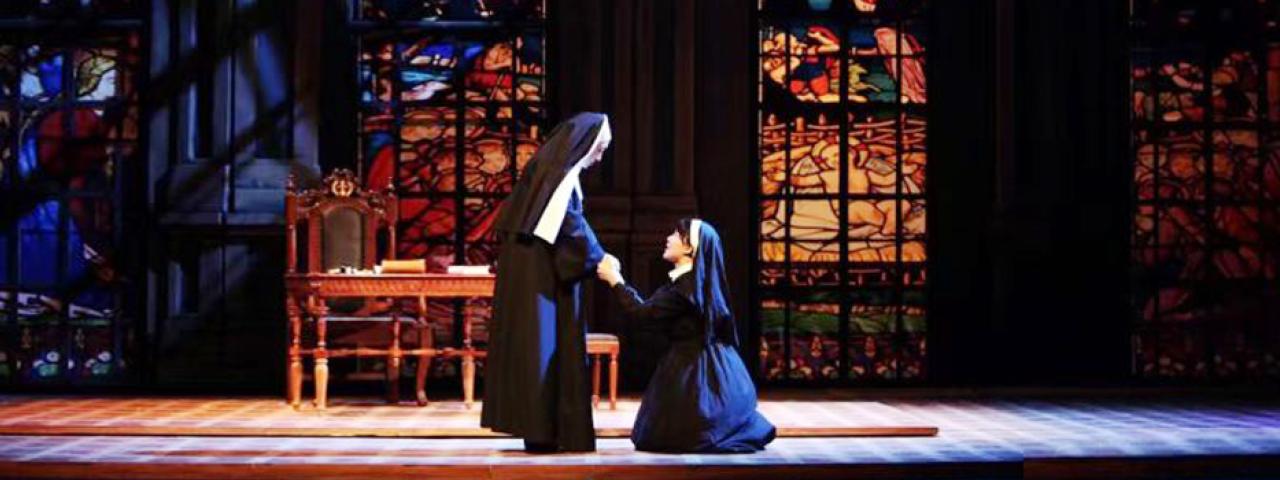
On October 6, a Chinese language version of the beloved Broadway musical, The Sound of Music, opened at the Shanghai Grand Theater. If you look and listen closely, a familiar NYU Shanghai face will be wearing a nun’s habit and singing one of the showstoppers. Clinical Assistant Professor of the Arts Jie Wang will be playing the Mother Abbess and singing Climb Ev’ry Mountain during the show’s two week run.
The Gazette joined Professor Wang backstage on opening night for a quick Q&A.
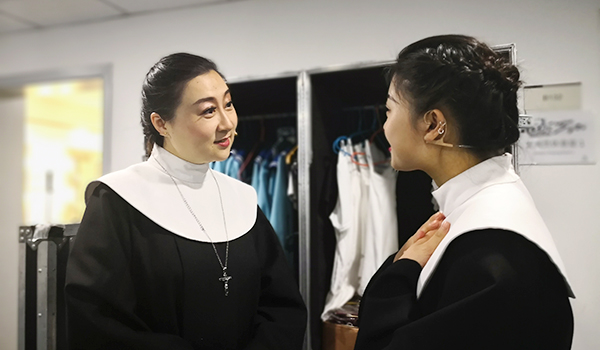
Q: Since you are both an actor and professor, do you believe that performing makes you a better music instructor?
A: Definitely. As in the field of medicine, theoretical study is quite essential to musical artists and educators. But continuous clinical practice, i .e., stage performance, is even more important. For example, only when we keep honing our performing skills on stage can we become better at finding the rhythm of performing with partners.
Q: What do you think of your role, Mother Abbess, and how are you interpreting it?
A: There is a special relationship between Maria and Mother Abbess. It is Mother Abbess who helps Maria in her dream to begin her own journey of life.
In the movie version, Mother Abbess was a kind, older woman, while in the Chinese version of this musical, she is adapted into a younger woman. She shares many similarities with Maria, such as being a woman full of self-dignity, wisdom, as well as strong compassion and maternal instinct. When singing Climb Ev’ry Mountain, Mother Abbess is not only enlightening Maria, she is also exploring her own life mission and strengthening her belief in life. In my eyes, Mother Abbess is a fully-developed character with great charm.
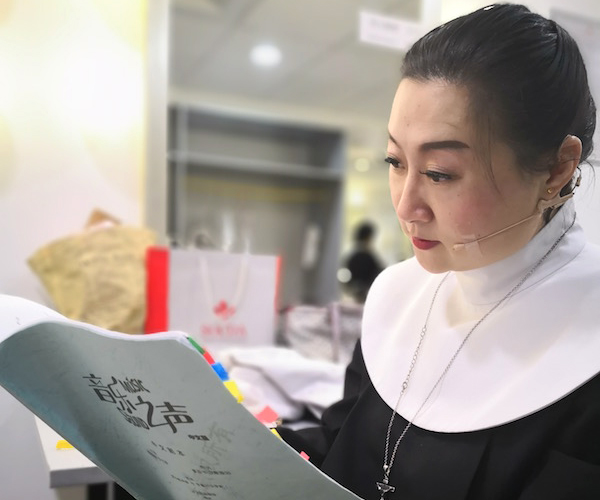
Q:How does the Chinese version of this musical compare to the well-known movie version?
The musical is a rich art form, and it demands actors of great skill and quality. In recent years, with the deepening of cultural exchanges between China and the West, an increasing number of young Chinese people have become fond of musicals, especially of American Broadway musicals. So musicals are very popular in Shanghai, but the artistic level of our original works are still at a relatively early stage.
I think a Chinese language adaptation of a classic Broadway musical is the best way to learn the art form. There is no language barrier, enabling both Chinese performers and the audience to better appreciate the story.
However, adaptation is quite difficult. It’s not a case of simple translation work. Translators must have a deep understanding of the story and each line of the script. They’ve also got to be aware of cultural differences. What’s more, the translators should be equipped with a relatively in-depth understanding of vocal music when translating an aria, otherwise, the Chinese version may seem strange for both the actors and audience.
The Chinese adaptation of The Sound of Music has been very successful. To those of us who have studied musicals in America and come back to China, it is a great feeling to be able to perform in our mother language.
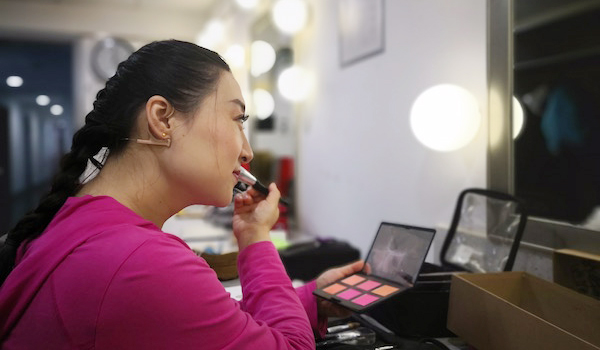
Q: What do you think is the importance of music education in an international university?
In addition to the United States, many universities or colleges in developed western countries such as Germany, the United Kingdom, and France have attached great importance to art and music in a liberal arts education.
A song or a solo may inspire a student and stimulate his or her imagination and creativity. Fostering a student’s musical ability can help increase the sensitivity of their hands and ears, enlarge their reaction capacity, and improve their understanding, observation, and memory. All of this is beneficial to the study of science and liberal arts.
Music appreciation also enhances college students’ cultural accomplishment. Students cultivated by NYU Shanghai, I think, should be high-quality versatile talents with scientific ideas, humanistic spirit, and creativity.
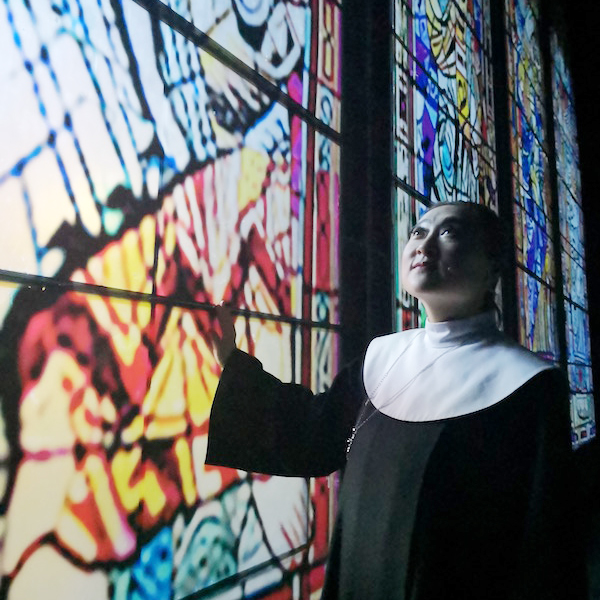
The Chinese language version of the Sound of Music runs at the Shanghai Grand Theater through October 14.

